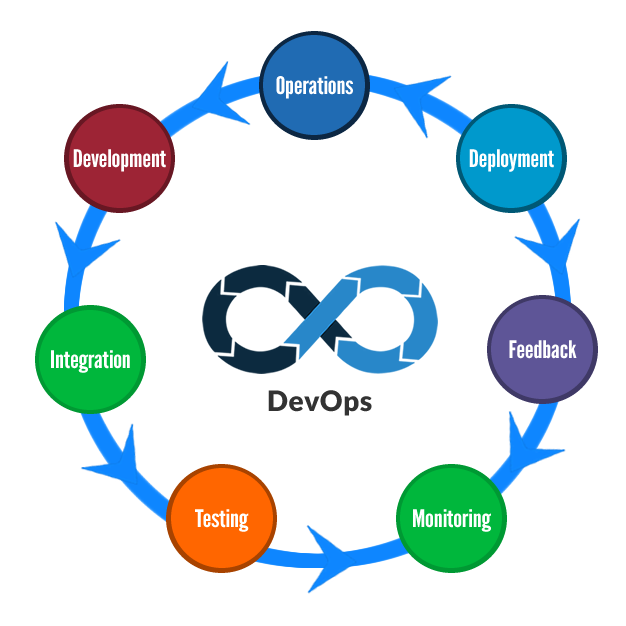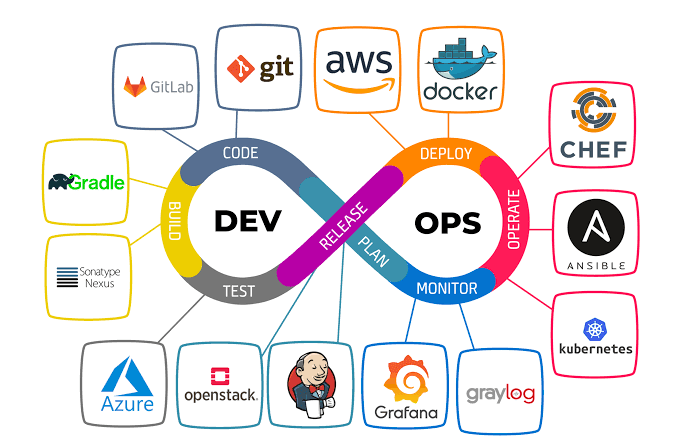3 Key Takeaways
• Essential AWS DevOps Topics: Get familiar with the most critical AWS DevOps interview questions, covering areas like CI/CD pipelines, infrastructure as code, automation, and cloud-native best practices.
• Expert Tips for Success: Learn pro tips for structuring your answers to demonstrate your hands-on experience with AWS DevOps tools, such as AWS CodePipeline, CloudFormation, and Elastic Beanstalk, as well as your problem-solving skills.
• Showcase Real-World Applications: Discover how to highlight your ability to implement and manage DevOps processes in real-world scenarios, emphasizing efficiency, scalability, and reliability in AWS environments.
The tech world changes fast, and knowing AWS DevOps is key for anyone who wants to stand out in cloud computing jobs. AWS DevOps combines development and operations ideas to make app deployment, monitoring, and scaling smooth. With good prep, you can ace AWS DevOps interviews, which are getting tougher. Here’s a full guide to help you get ready for AWS DevOps interview questions in 2024 packed with expert advice and hands-on tips.
Understanding AWS’s Role in DevOps

AWS (Amazon Web Services) offers a bunch of tools that make DevOps practices easier letting companies automate and handle their infrastructure without much hassle. If you want to work in an AWS DevOps job, you need to know these services inside out.
Key AWS Services for DevOps
- AWS CodePipeline: This service for continuous integration and delivery helps you automate your release process. It lets you model, visualize, and automate the steps to release your software. To learn how to integrate CodePipeline into your deployment strategy, take a look at this guide on mastering the CI/CD pipeline.
- AWS CloudFormation: This tool allows you to model and set up your AWS resources. As a result, you can spend less time managing these resources and more time focusing on your applications. This becomes essential when you work with Infrastructure as Code (IaC).
- AWS CodeBuild and CodeDeploy: These services make building, testing, and deploying code automatic. This ensures your deployment pipelines stay consistent and work well.
These services play a key role in today’s DevOps methods. If you want to create or upgrade your DevOps systems on AWS, AWS’s official guide is a crucial tool to help you.
Common AWS DevOps Interview Questions
During an AWS DevOps job talk, you might face different questions from simple to complex. Here are some typical questions you should get ready to answer:
- What is DevOps, and how does AWS facilitate DevOps practices?
- Answer Tip: DevOps blends practices, tools, and work cultures to streamline and connect processes between software developers and IT teams. AWS backs DevOps by providing services such as CodePipeline, CloudFormation, and Elastic Beanstalk. These tools help teams to deliver software faster and more.
- Explain how you would implement a CI/CD pipeline using AWS services.
- Answer Tip: You can use AWS CodePipeline to set up a strong CI/CD pipeline. Begin with a source stage that uses CodeCommit or GitHub. Then, add build and test stages with CodeBuild. , deploy your application through CodeDeploy or Elastic Beanstalk.
- How do you manage security in an AWS DevOps environment?
- Answer Tip: To handle security in AWS, use IAM roles and policies, encrypt data when it’s stored and moving, and set up security groups and Network Access Control Lists (ACLs). It’s also key to run regular checks with AWS Config and CloudTrail to make sure you’re following rules and staying secure.
To learn more about these key ideas, check out our article on top interview skills for landing a job in 2024.

Advanced AWS DevOps Interview Questions
These questions aim to evaluate your knowledge and problem-solving skills in a real-world AWS DevOps setting.
- Tell us about the Blue/Green Deployment Strategy in AWS.
- Answer Tip: Blue/Green deployment cuts downtime and risk. It runs two identical environments. Traffic goes to the Blue environment. Updates happen in the Green environment. When the Green environment is set, traffic switches over. This ensures little disruption.
- How can AWS CloudFormation help automate infrastructure setup?
- Answer Tip: AWS CloudFormation lets you set up and provide AWS infrastructure with templates. This method makes sure you can copy environments across different stages of your development cycle.
- Why are monitoring and logging important in AWS? Which AWS services would you pick?
- Answer Tip: Keeping an eye on your apps and logging what they do are key to keeping them running. AWS CloudWatch is the main tool for this job. It can keep track of important numbers, send you warnings, and work with other AWS tools to give you a full picture of what’s going on.
Learn more about managing complex deployment strategies in our Ultimate System Design Interview Guide.
Scenario-Based AWS DevOps Interview Questions
Questions based on scenarios test how well you can use your knowledge in real-world situations:
- How would you move a monolithic application to a microservices setup using AWS?
- Answer Tip: Start by breaking down the monolithic application into stand-alone services. Use AWS tools like Elastic Kubernetes Service (EKS) or AWS Lambda to handle and roll out these microservices. Make sure you have a plan to migrate databases and manage API gateways.
- Your application is running slowly. How would you find and fix this problem in AWS?
- Answer Tip: Start by using AWS CloudWatch to keep an eye on latency metrics. Next, think about making your AWS resources better, like changing instance sizes or setting up auto-scaling. Using ELB for load balancing and CloudFront or ElastiCache for caching can also help cut down on latency.
- Tell us about a time when you had to make your AWS infrastructure cheaper.
- Answer Tip: Talk about specific times when you used AWS Cost Explorer or set up Reserved Instances to save money. Also, mention why it’s crucial to size things right and get rid of resources you’re not using.
To get pointers on tackling scenario-based questions, take a look at our article about nailing interview warm-up questions.
Behavioral AWS DevOps Interview Questions
These questions evaluate how you deal with particular situations:
- Can you tell me about a time when you had to fix a big problem in production while under pressure?
- Answer Tip: Talk about the problem, what you needed to do how you went about it, and how it turned out using the STAR method (Situation, Task, Action Result). Show how you kept your cool and thought when things got tough.
- How do you keep up with what’s new in AWS and DevOps?
- Answer Tip: Talk about specific things you use like AWS papers official AWS certificates, and industry blogs you read. You can also bring up going to conferences or being part of online groups like AWS re.
To learn more about behavioral interview techniques, check out our article on 50 Behavioral Interview Questions.
Final Tips to Ace AWS DevOps Interviews
- Get Your Hands Dirty: You can’t beat real-world experience. Take advantage of the AWS Free Tier to practice setting up and managing DevOps tools like CodePipeline, CloudFormation, and Lambda.
- Keep Up: AWS doesn’t stand still so make it a habit to read AWS blogs and join webinars. This will give you an edge in interviews and help you in your everyday work.
- Be Ready for Curveballs: AWS DevOps jobs need you to roll with the punches. You should be able to think and fix problems as they come up.
To find out more about getting ready for AWS DevOps positions, check out our in-depth guide on acing your Amazon interview in 2024.
Read More:
Outside Sources:
- AWS DevOps Certification Course: Boost your know-how with a -recognized certification.
- AWS Official Documentation: The main source to learn about AWS services.




